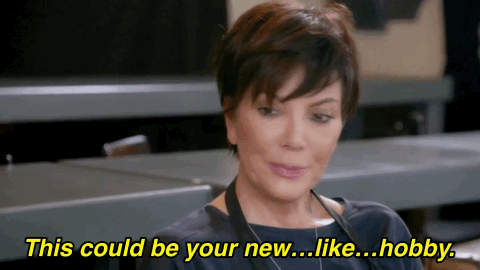
This post was written by an external contributor. If you’re in post-graduation panic mode, let Lucy Skoulding take you through her advice for surviving the first year of post-university life.
If only my current self could use a time-turner to return to Lucy on the day of her graduation, who felt ecstatic at being awarded a great degree but also mildly terrified of what the world had in store.
I’m not professing to be some kind of wise owl; I still have a lot of figuring out to do and I admit that I still can’t drive and I have never cooked a roast dinner.
However, I feel so proud of what I have achieved in my last year and I honestly put a lot of it down to my attitude. I knew that my first year in the adult world would be scary, and I had a choice either to let that get the better of me or stay optimistic and get on with it. Here’s what I have learned.
There is no replacement for hard work

I have a confession to make. Hard work is vital if you want to follow your dreams. As cliché as it sounds, no-one who you think of as inspiring got there through luck or sitting on the sofa. You need to work hard if you want to achieve your goals.
Hard work can come in many different forms. You might enjoy the job you are currently in, have a progression track in mind, and know how you plan to get there. Equally, you might decide to work hard on your side hustle or your hobby. You may work hard to meet other people who share your interests, to learn a new skill, or to train your body physically. All are equally valid.
You can’t compare yourself to your friends

Please. I repeat, PLEASE, do not measure your success against other people’s. There will always be friends who have a seemingly perfect job or a solid life plan after they finish their degrees. Apart from the fact that you might not know their whole story, you cannot compare your life with someone else’s like that.
Making comparisons is natural and we are our own harshest critics. The way I have dealt with this is by setting myself goals. This way, you measure your success against something achievable, rather than aiming to attain what someone else has. There are so many techniques for goal-setting that it may as well be a degree, but I recommend reading Creating Your Best Life by Caroline Miller for tips.
There’s no harm in practicing what you love

It can be easy to leave your hobbies behind at university, thinking you should focus on your career, but this can be a mistake on many levels. If your hobby is where you eventually want your career to be, don’t give up on it. If you pursued an interest simply because you love doing it or enjoy meeting others through it, then try to continue with it, it will be great for your mental health.
Depending on what your hobby is, you might feel concerned about fitting it in alongside a full-time job but there is always a way. If it’s a sport, you could reduce your training sessions or if it’s learning a language you can teach yourself by following online tutorials in your own time. Allocate time in your week for your hobby and prioritise it over everything else.
Start to form good habits now

Starting work is a good time to begin forming some habits for life. Unlike university, you will fall naturally into a routine. You will learn details about yourself, like how much sleep you need, what energises you, and how to stay healthy and happy while still working hard. Take note of these details, and develop habits which are best for you and your health.
Habits can span all aspects of your life, including planning, keeping the house tidy, staying in touch with people, looking after your health, developing your career and learning new skills. Habits are about choosing how you want to live your life then adjusting your behaviour accordingly. For example, if staying in touch with old friends is important to you, schedule regular time for phone calls or meet-ups.
Shopping for house furniture is actually quite fun

This one seems a bit jokey next to my other points, but what I’m really trying to say is that entering adult life does not have to be boring. You can continue socialising with your friends, having fun with your family, and organising fun nights out and day trips. You might decide to go travelling after graduation, or save up for some memorable holidays.
You can continue to lead a life that you love. You might even find that the best time of your life is in your twenties, when you can continue to have fun and have the money to do so. New aspects of life will become exciting and important to you. And, honestly, furniture shopping for your own place is a pretty good feeling.
You genuinely don’t need to decide what you want to do yet

And you certainly don’t need to be there already. If you’ve been to university then life, until now, has followed a clear pattern. You have only known what it is like to be in or working towards education. There is a natural feeling within us to want to know what our future looks like. But like Baz Lurhman said, “the most interesting people I know didn’t know at 22 what they wanted to do with their lives.”
You might go to university already knowing what career you want to follow, or maybe you will discover that and secure a graduate job while you’re there. If you do, that’s an amazing achievement, but be mindful of people that aren’t in your position. If you graduate and have not sorted out a job yet, just stay calm and figure out a plan. My best piece of advice is to be in work while you look for what you want to do. Having a job will add structure to your day, motivate you to get applications done, and ensure you have no unexplained gaps in your CV.
There are actual techniques for time management

Who knew? I probably should have learned some of these at university so I wasn’t always running into my lectures late, but better late than never. Life in full-time work will feel very different to uni at first, especially if, like me, you only had around seven contact hours a week. But you can continue doing what you enjoy, you just need to get organised.
Time management is an individual choice; it’s what works best for you. I have personally found that an action diary works well for me, which divides days into hours and includes space for writing to-do lists and objectives. Dividing my day into sections and always having daily goals helps me to focus. For example, if my aim is to write an article after work I will complete this before doing anything else. Once you hack time management you will feel like a god, trust me.
Enjoy the confusion

Ok, here’s the big one. If you take one thing from this article, please let it be this: enjoy not knowing what lies ahead of you. Enjoy the confusion, enjoy trying things out, enjoy moving to a new place and meeting new people and learning new things. If you start a job and don’t like it, sit tight, apply for new ones, then run for the hills as soon as you’re successful. When new worries creep into your life, like actually trying to save money, look at them as learning curves. You don’t want to look back on your twenties and see yourself as a ball of stress, so just enjoy it.
Connect with Debut on Facebook, Twitter, and LinkedIn for more careers insights.


